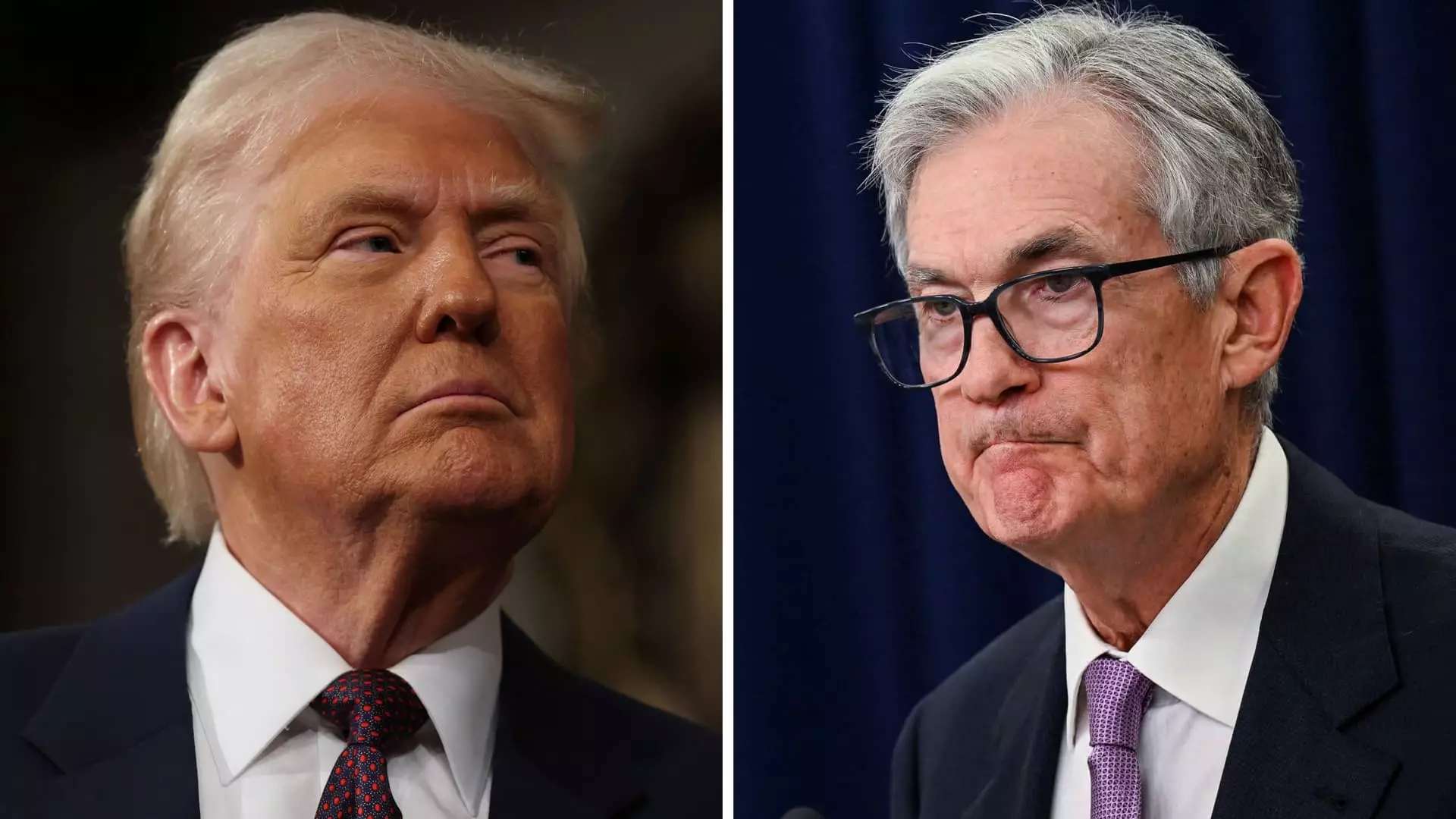In an unprecedented turn of events, former President Donald Trump has unleashed his scathing critiques on Federal Reserve Chair Jerome Powell, pushing the boundaries of acceptable rhetoric towards a figure critical to American economic stability. This escalation of tensions between the Trump administration and the Fed illustrates a concerning dynamic where political ideologies clash with the expectations of independent economic governance. Trump’s pinpoint accusations—claiming that Powell lacks a precise understanding of monetary policy—are not simply a reflection of frustration but appear to be part of a strategy aimed at undermining an institution that is supposed to operate free from political meddling.
The burgeoning discontent within the White House is palpable, with advisors like Kevin Hassett publicly mulling over the possibility of removing Powell. The effort seems almost desperate, indicative of a leader unwilling to grapple with the reality that the Federal Reserve operates under a different set of rules than those governing traditional political appointees. Trump’s comment that interest rates should be lower if only Powell “understood” his job reflects a profound misunderstanding of the careful balancing act required in managing national monetary policy. Such statements are not merely whimsical; they risk fostering a destabilizing environment that could have long-term repercussions on both domestic and global markets.
Pandering to Political Aims
The former President’s metaphorical bombshell on platforms like Truth Social—referring to Powell as “Too Late”—serves a dual purpose. On one hand, it is an attempt at humor in typical Trumpian fashion, and on the other, it diminishes the seriousness with which we should approach the role of the Federal Reserve. When Trump publicizes terms like “termination,” he signals a dangerous inclination towards authoritarianism, one that blurs the lines between political leadership and economic governance, thus infringing upon the autonomy that institutions like the Fed desperately need to fulfill their responsibilities effectively.
It is worth noting that while economic policy should ideally be discussed in the realm of reason and careful analysis, Trump’s most recent rhetoric dances dangerously close to inciting panic and disorder. Former Sen. Elizabeth Warren aptly pointed out the potential fallout: should a sitting president be able to fire the chair of the Federal Reserve at whim, it could catalyze a market crash, eroding public trust and stability in financial institutions. Any perception that the Fed’s policies are politically motivated rather than driven by prudent analysis can lead to catastrophic consequences, both in terms of market confidence and the broader economic landscape.
A Complex Economic Landscape
When Powell addressed the complications brought about by Trump’s contentious trade tariffs, retreating from an over-simplistic narrative of blame was necessary. Powell cautioned that such policies could magnify inflation—an unforeseen consequence that could quash the administration’s goals of fostering high employment and price stability. His measured response challenges the incorrect notion that cutting interest rates is the one-size-fits-all solution to economic woes. The reality is that any attempt to manipulate monetary policy for immediate political gain could jeopardize long-term economic health.
With interest rates currently hovering between 4.25% and 4.5%, the Federal Open Market Committee’s decisions should stem from data analysis and not from external pressures. The looming possibility that the Fed might hold rates steady aligns more with a need for stability than a knee-jerk reaction to political pressures. Yet, the stakes could have broader implications if the Executive Branch continues to assert undue pressure on an independent institution created to provide checks and balances in economic policy.
In Defense of Independence
As we assess the ongoing crisis precipitated by Trump’s rhetoric, a critical question arises: what price are we willing to pay for political expediency? Economic performance should not be held hostage to the whims of a single individual, regardless of their power. The independence of the Federal Reserve is essential for maintaining public trust and securing the financial groundwork upon which the country relies. Undermining this essential feature for short-term political gains could erode the benefits that a stable economy provides for all layers of society.
Ultimately, the intersection of politics and monetary policy paints a picture fraught with volatility. In such a landscape, it is imperative for leaders to pay heed to the foundations of economic governance. While differing opinions on monetary policy are expected, the manner in which they are discussed and the motivations behind them must be transparent and grounded in the best interests of the economic fabric. As tensions rise and political maneuvers intensify, we must advocate for the sanctity of independent oversight—keeping the power of monetary policy apart from the fray of the political arena.


Leave a Reply